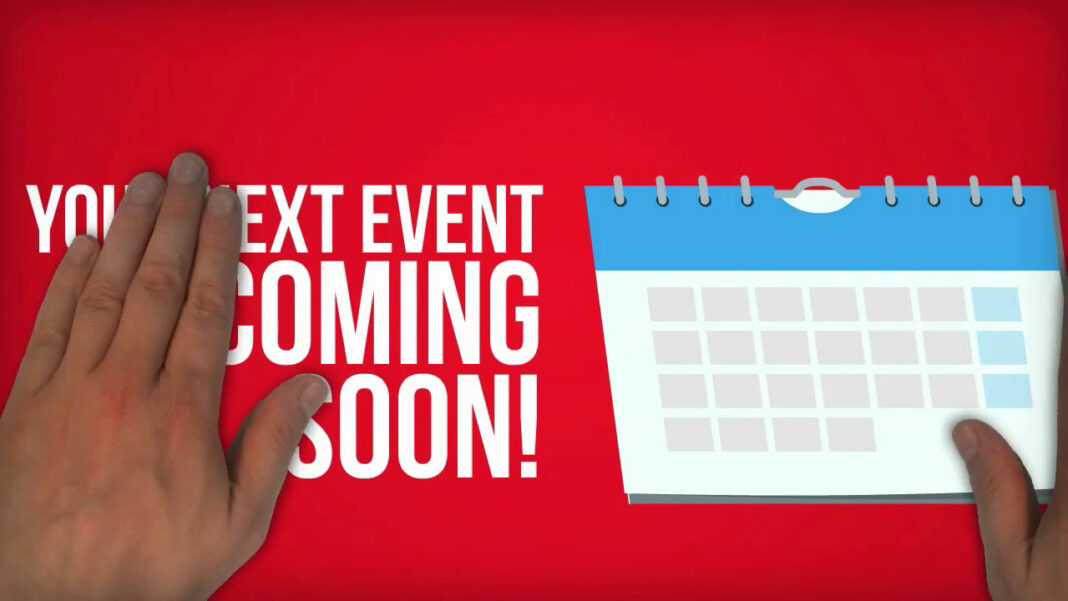The success of an event greatly depends on its launch – the initial promotion and buzz created around it. With the event landscape becoming increasingly competitive, it’s essential to stand out from the crowd and capture the attention of your target audience. This requires more than just a well-structured program and a captivating venue; it requires a comprehensive and strategic approach to creating buzz.
In this guide, we’ll delve into the art of orchestrating buzz for your event launch. We’ll explore the meaning of buzz in the context of event promotion, the importance of creating buzz, and strategies for generating excitement and anticipation before and during the event. From utilizing social media and collaborating with influencers to measuring the success of buzz creation, we’ll equip you with the tools and tactics to ensure your event is a resounding success.
Importance of Creating Buzz for Event Launch
Creating buzz is a crucial aspect of launching an event. It involves generating excitement and anticipation among your target audience, enticing them to attend and engage with your event. But why is it so important?
Firstly, creating buzz helps your event stand out in a saturated market. With so many events clamoring for attention, it’s easy to get lost in the noise. By creating buzz, you can cut through the clutter and make your event stand out as a must-attend occasion.
Secondly, buzz generates interest and increases attendance. When people are talking about your event and eagerly anticipating it, they are more likely to attend. Additionally, by creating a sense of urgency, you can encourage people to register early, ensuring a higher turnout and avoiding last-minute cancellations.
Lastly, buzz can also lead to increased brand awareness and word-of-mouth marketing. When attendees are excited about your event, they are more likely to share it with their networks, expanding your reach and potentially attracting new attendees.
Defining “Buzz” in the Context of Event Promotion

Before we dive into strategies for creating buzz, it’s essential to understand what we mean by “buzz.” In the context of event promotion, buzz can be defined as the excitement and anticipation generated around an event. It’s the feeling that something big and exciting is happening, and everyone wants to be a part of it.
Creating buzz involves tapping into people’s emotions and capturing their attention. It’s about creating a sense of FOMO (fear of missing out) and making your event a hot topic of conversation among your target audience.
Defining Your Target Audience for Creating Buzz

To effectively create buzz, you need to have a deep understanding of your target audience. Who are the people you want to attend your event? What are their interests, pain points, and preferences?
By defining your target audience, you can tailor your messaging and promotional efforts to resonate with them. For example, if your event is targeting young professionals, you may want to utilize social media platforms like Instagram and LinkedIn to reach them. If your event caters to a specific industry, you may want to partner with relevant organizations or influencers in that field to amplify your reach.
Additionally, understanding your target audience can also help you determine the most effective channels for promoting your event and creating buzz. For example, if your audience is mostly tech-savvy, online platforms may be more effective than traditional marketing methods.
Strategies for Creating Buzz Before the Event
The pre-event period is crucial for creating buzz. It’s when you lay the foundation and build anticipation for your event. Here are some strategies to consider:
Develop a Compelling Narrative
Creating a compelling narrative is key to engaging your target audience and generating buzz. Start by defining the purpose of your event and the key takeaways for attendees. What makes your event unique, and why should people attend? Craft a story around these elements, using emotional appeals to capture the hearts and minds of your target audience.
For example, if your event is a conference, your narrative could revolve around inspiring attendees to reach their full potential and achieve their dreams. If your event is a product launch, your story could focus on the innovation and benefits of your product, igniting curiosity and excitement.
Utilize Social Media
Social media is a powerful tool for creating buzz before an event. It allows you to directly engage with your target audience, share updates and sneak peeks, and entice them to attend your event. Here are some ways to utilize social media:
- Create event-specific hashtags: Use catchy and memorable hashtags to promote your event and encourage attendees to use them when sharing about the event.
- Share teasers and behind-the-scenes content: Share photos, videos, or sneak peeks of what attendees can expect at the event. This will generate excitement and anticipation.
- Host contests and giveaways: Use social media to run contests and giveaways that offer tickets or other perks for your event. This can help boost engagement and attract new attendees.
- Collaborate with influencers: Reach out to relevant influencers in your industry or niche and ask them to promote your event to their followers. Their endorsement can help increase credibility and attract a wider audience.
Leverage Email Marketing
Email marketing is another effective way to create buzz before an event. Start by building an email list of previous attendees, potential attendees, and partners. Then, use these emails to share event updates, exclusive offers, and personalized invitations.
Make sure to segment your email list based on their interests and preferences, so you can tailor your messaging and make it more targeted and impactful. For example, send personalized emails to previous attendees thanking them for their support and offering them early bird discounts. Send different emails to potential attendees highlighting the unique aspects of your event and why it’s a must-attend.
Strategies for Creating Buzz During the Event
Creating buzz doesn’t stop once the event starts. In fact, it’s even more crucial to maintain excitement and engagement during the event. Here are some strategies to consider:
Encourage Social Media Sharing
Encouraging attendees to share about the event on social media can help create a buzz in real-time. It allows people who couldn’t attend to participate virtually and increases the reach of your event. Here are some ways to encourage social media sharing:
- Create an interactive event hashtag wall: Display a live feed of tweets and Instagram posts using your event hashtag, creating a sense of community and encouraging others to join in.
- Run social media contests: Host fun and engaging contests on social media that require attendees to post about the event. This can increase engagement and generate buzz.
- Offer incentives for social media posts: Consider offering rewards or perks for attendees who post about the event on social media. This will motivate them to share and promote your event.
Use Live Streaming
Live streaming is an excellent way to engage with your audience in real-time and attract a wider audience. Platforms like Facebook, Instagram, and YouTube offer live streaming options that you can utilize to broadcast segments of your event. This could include keynote speeches, performances, panel discussions, or behind-the-scenes moments.
Live streaming allows people who couldn’t attend the event to experience it virtually and creates a sense of urgency and FOMO among those watching. Make sure to promote your live stream beforehand to generate anticipation and ensure maximum viewership.
Create Shareable Moments
Creating moments that attendees want to capture and share on social media can significantly contribute to buzz creation. This could be anything from unique photo opportunities, interactive installations, or surprise performances. These moments will not only encourage attendees to share but also leave a lasting impression and make your event memorable.
For example, at Coachella music festival, giant art installations are strategically placed to create perfect photo moments for attendees to share on social media. This has become a signature aspect of the festival and adds to its buzz and appeal.
Utilizing Social Media and Other Platforms for Buzz Creation
Social media is just one of the many platforms you can utilize to create buzz for your event launch. Here are some other platforms to consider:
Online Communities and Forums
Online communities and forums are a great way to reach a targeted audience and generate buzz for your event. Platforms like Reddit, Quora, and LinkedIn Groups allow you to engage with people who have a specific interest or expertise related to your event.
Join relevant groups and communities and participate in discussions, offering valuable insights and promoting your event when appropriate. Make sure not to spam or come across as too self-promotional; instead, focus on building genuine connections and providing value.
Collaborating with Influencers and Partners
Collaborating with influencers and partners can significantly amplify your reach and create buzz for your event. When choosing influencers, make sure they align with your event’s purpose and values and have a significant following that overlaps with your target audience.
Partnerships with other organizations or brands can also help expand your reach and bring in new audiences. For example, if your event is a food festival, partner with local restaurants and food bloggers to promote the event and attract foodies.
Measuring the Success of Buzz Creation
Measuring the success of buzz creation is essential in determining the effectiveness of your promotional efforts and making improvements for future events. Here are some metrics to consider:
- Social media engagement: Track the number of likes, shares, comments, and mentions on social media related to your event.
- Hashtag mentions: Monitor the use of your event hashtag across different social media platforms.
- Ticket sales and registrations: Measure the number of tickets sold and registrations to gauge the impact of your promotional efforts.
- Website traffic: Keep an eye on the number of visitors to your event website and the sources of traffic.
- Post-event surveys: Conduct surveys with attendees to gather their feedback and measure how many heard about the event through promotional efforts.
Conclusion
Creating buzz for an event launch is an intricate process that requires a well-crafted narrative, strategic planning, and effective execution. By defining your event’s core, understanding your target audience, and utilizing various platforms and strategies, you can generate excitement and anticipation before and during the event. Remember to measure the success of your buzz creation efforts and make improvements for future events, ensuring continued success in captivating and converting your target audience.


